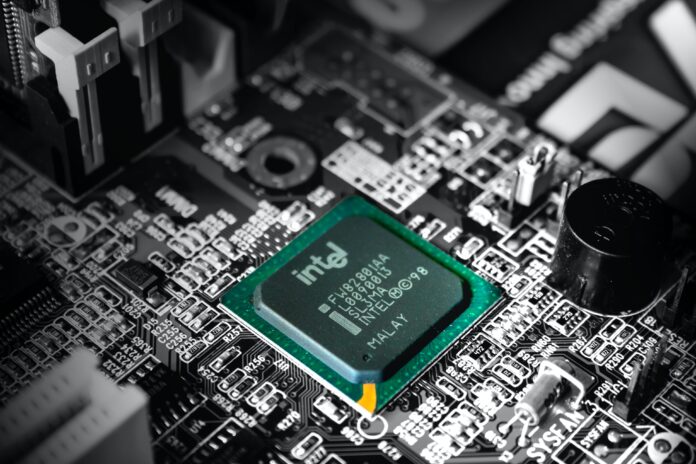Intel Corporation, commonly known as Intel, is a multinational technology company based in Santa Clara, California. Founded in 1968, Intel has emerged as one of the leading players in the semiconductor industry, specializing in the design and manufacturing of microprocessors and related hardware and software products. The company has made significant contributions to the advancement of computing technology and has played a pivotal role in shaping the modern digital landscape. Here are five important things you should know about Intel:
1. History and Legacy:
Intel has a rich history that spans over five decades. The company was founded by Robert Noyce and Gordon Moore, two pioneers of the semiconductor industry. Intel’s first major breakthrough came in 1971 with the introduction of the world’s first microprocessor, the Intel 4004. This invention revolutionized the computing industry by integrating all the essential components of a computer’s central processing unit (CPU) onto a single chip. Since then, Intel has been at the forefront of innovation, consistently delivering advancements in microprocessor technology.
2. Dominance in the PC Market:
Intel has long been synonymous with personal computer (PC) processors. Its x86 architecture, which powers the majority of PCs globally, has become the industry standard. For many years, Intel enjoyed a near-monopoly in the PC processor market, with its processors being the preferred choice for desktops and laptops. The company’s processors have been recognized for their performance, power efficiency, and compatibility. However, in recent years, competition from rival chipmaker AMD has intensified, challenging Intel’s dominance in the PC market.
3. Expansion into Data Centers:
While Intel’s success has been closely tied to the PC market, the company has strategically expanded its presence in the data center industry. Data centers are large-scale facilities that house servers and storage systems, providing computing power and storage for a wide range of applications, including cloud computing, artificial intelligence, and big data analytics. Intel recognized the growing demand for data center solutions and developed server-grade processors, such as the Intel Xeon line, tailored for high-performance computing environments. This diversification has allowed Intel to tap into the rapidly expanding data center market and reduce its dependence on the PC industry.
4. Manufacturing Leadership:
Intel has maintained a reputation for its manufacturing prowess. The company has heavily invested in cutting-edge fabrication facilities, known as fabs, where it produces its microprocessors. Intel’s fabrication technology has consistently pushed the limits of miniaturization, enabling the production of smaller, faster, and more power-efficient chips. In recent years, Intel faced challenges with its transition to more advanced manufacturing nodes, experiencing delays in the rollout of its 10nm and 7nm processes. However, the company has outlined plans to regain its manufacturing leadership and has committed substantial investments to accelerate its technology roadmap.
5. Focus on Emerging Technologies:
To stay ahead in the rapidly evolving tech industry, Intel has been actively investing in and researching emerging technologies. One such area of focus is artificial intelligence (AI), where Intel provides hardware and software solutions optimized for AI workloads. The company has developed specialized processors, like the Intel Neural Network Processing Unit (NNP), designed to accelerate AI computations. Additionally, Intel has been exploring opportunities in autonomous vehicles, Internet of Things (IoT), and 5G networking, aiming to provide the underlying technology that powers these transformative areas.
Intel is a prominent player in the semiconductor industry, renowned for its microprocessor technology and dominance in the PC market. The company’s history and legacy, coupled with its expansion into data centers and commitment to manufacturing leadership, have shaped its trajectory over the years. As the tech landscape continues to evolve, Intel’s focus on emerging technologies demonstrates its determination to stay at the forefront of innovation.
Furthermore, Intel’s impact extends beyond its product offerings. The company has a strong commitment to research and development (R&D) and has invested significant resources in exploring new technologies and pushing the boundaries of what is possible. Through its research labs and collaborations with academia and industry partners, Intel actively contributes to advancements in areas like quantum computing, neuromorphic computing, and advanced materials.
Intel also places a strong emphasis on sustainability and corporate responsibility. The company has set ambitious goals to reduce its environmental impact, aiming for net-positive water use, 100% green power, and zero waste to landfill by 2030. Intel is dedicated to improving the energy efficiency of its products and has introduced power-saving features in its processors to minimize power consumption. Additionally, the company supports various social and community initiatives, focusing on education, diversity and inclusion, and supporting underserved communities.
In terms of its market presence, Intel has a global reach and operates in numerous countries around the world. The company has a vast network of partners, including original equipment manufacturers (OEMs), system integrators, and software developers, enabling the widespread adoption of its technologies. Intel’s brand recognition and reputation for quality have contributed to its strong market position, despite facing increasing competition from other semiconductor companies.
It’s worth noting that the semiconductor industry is highly dynamic and subject to rapid technological advancements and market fluctuations. Intel faces several challenges, including the need to regain its manufacturing leadership, address increased competition in the PC market, and navigate the evolving landscape of emerging technologies. The success of Intel’s future endeavors will depend on its ability to innovate, adapt, and meet the changing demands of the industry.
Looking ahead, Intel is actively positioning itself to capitalize on emerging trends and technologies. One area of focus is the Internet of Things (IoT), which refers to the interconnectedness of everyday objects and devices through the internet. Intel is leveraging its expertise in computing and connectivity to develop IoT solutions that enable seamless integration and data exchange between devices. The company aims to provide the underlying technology that powers smart homes, smart cities, industrial automation, and other IoT applications. By leveraging its extensive ecosystem and collaborating with industry partners, Intel is well-positioned to play a significant role in shaping the future of IoT.
Additionally, Intel recognizes the potential of 5G networking and the transformative impact it can have on various industries. 5G technology promises faster data speeds, lower latency, and massive device connectivity, enabling new possibilities in areas such as autonomous vehicles, remote healthcare, and augmented reality. Intel is actively involved in the development and deployment of 5G infrastructure, providing key components such as modems and network processors. The company’s efforts in this space aim to accelerate the adoption and realization of the full potential of 5G technology.
In conclusion, Intel’s influence in the semiconductor industry is vast, with a strong legacy and a continued commitment to innovation. Its dominance in the PC market, expansion into data centers, focus on emerging technologies like AI and IoT, dedication to manufacturing leadership, and involvement in areas such as sustainability and corporate responsibility demonstrate Intel’s multifaceted approach. As the tech landscape continues to evolve, Intel strives to stay ahead of the curve, positioning itself at the forefront of breakthroughs in computing technology and playing a crucial role in shaping the digital future.


















